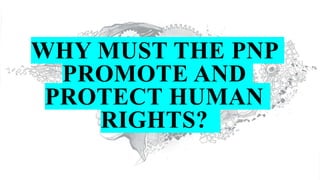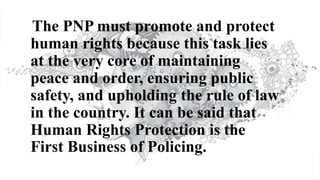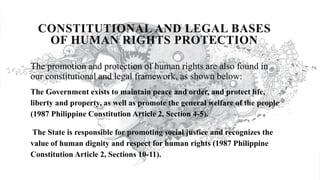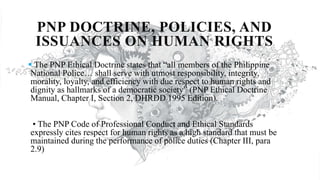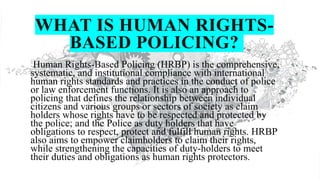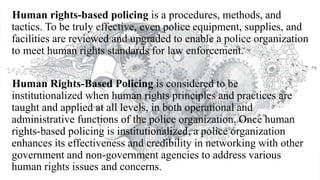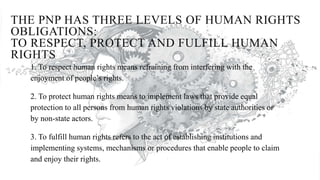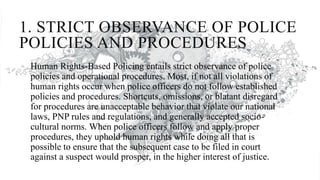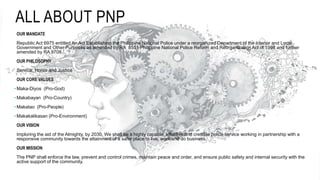The document discusses the importance of human rights protection as the core task of the Philippine National Police (PNP). It outlines the constitutional, legal, and international obligations of the PNP to promote and protect human rights. The document also defines human rights-based policing as an approach that respects human rights and dignity at all levels of policing. Key aspects of human rights-based policing include strict adherence to policies and procedures, respect for rule of law, and ensuring professional and courteous service.


